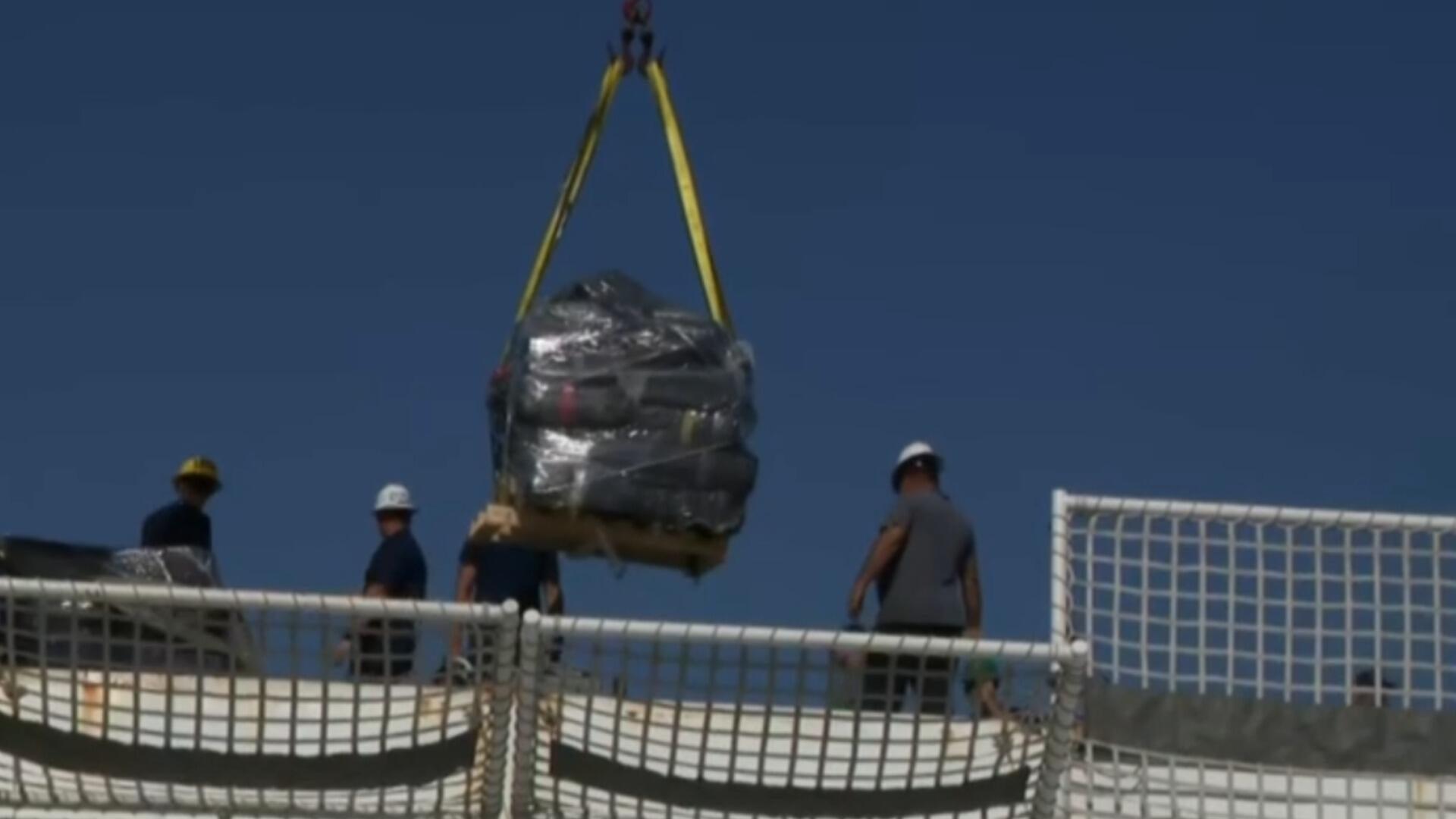Sydney Dockworkers Arrested in Major Drug Bust Raising Concerns Over Port Security
In a dramatic turn of events,authorities have apprehended three dockworkers implicated in a significant cocaine smuggling operation at the Port of Sydney. The operation involved the finding of over 300 kilograms of the illicit substance, hidden within a cargo shipment. This incident has ignited fears about the integrity of port facilities and the potential infiltration of organized crime within critical infrastructure. law enforcement officials are now investigating the possibility of a larger network operating within the port environment, raising urgent questions about the effectiveness of current security protocols.
As investigations unfold, several key issues have emerged:
- Vulnerability of Port Security: The incident highlights significant lapses in monitoring and regulation within one of Australia’s main logistical gateways.
- Collusion Concerns: The involvement of dockworkers raises alarming prospects regarding collaboration between port employees and criminal enterprises.
- Impact on Trade: Such high-profile drug busts can have cascading effects on trade operations and reputation, with import-export companies potentially facing stringent inspections.
Authorities are calling for immediate reforms and increased oversight too safeguard the port from future illegal activities, emphasizing the need for complete background checks on all personnel working in sensitive shipping areas. As this case continues to develop, many in the maritime industry are anxious to see how these events will reshape operational security measures going forward.

Inside the Operation: How Authorities Uncovered the Cocaine Shipment
In a meticulously planned operation, Australian authorities employed a combination of intelligence gathering, surveillance, and undercover work to unveil the intricate network behind a substantial cocaine shipment found at the Sydney docks. Following tips about suspicious activity, officers from the Australian Federal Police (AFP) began monitoring the movements of several dockworkers who appeared to have unusual ties to organized crime syndicates.Using advanced technology, including drones and facial recognition software, thay meticulously scrutinized hours of footage, correlating worker activity with unexpected cargo movements.
During the investigation, officials identified specific patterns in the dockworkers’ behavior that raised red flags. Notably,they observed frequent after-hours access to restricted areas of the port,which was later linked to the coordination of the cocaine shipment. The authorities conducted orchestrated raids, leading to the arrest of the three primary suspects involved. Evidence collected included:
- Surveillance footage documenting interactions between the dockworkers and known criminals.
- Phone records revealing extensive interaction with partners in organized crime.
- Transport documents that linked the shipment to a larger drug trafficking operation.
These critical findings not only underscored the dockworkers’ roles in facilitating the drug operation but also prompted a broader investigation into the potential involvement of other port employees and their connections to the drug trade. The case has raised concerns about security protocols within the port, prompting authorities to implement stricter regulations and oversight measures to prevent similar incidents in the future.

Impact on local Communities: The Ripple Effect of Drug Trafficking
The recent charges against three dockworkers in Sydney, linked to a massive cocaine shipment, underscore the profound ramifications drug trafficking has on local communities. As law enforcement tightens it’s grip on organized crime, the ripple effect of such illicit activities becomes painfully evident.Communities that once thrived on legitimate trade and employment opportunities are now facing challenges such as increased violence, economic instability, and a deterioration of public trust in institutions. The presence of drug trafficking not only saturates neighborhoods with criminal activity but also strains local resources that are often redirected to combat the fallout from such operations.
Furthermore, the socio-economic impact is felt by various segments of society. Local businesses may suffer due to a decline in customers who fear for their safety, while families grapple with the consequences of addiction and crime.The broader implications include:
- Heightened law enforcement presence: Increased police activity can lead to a climate of fear, affecting community dynamics.
- Stigmatization: Neighborhoods associated with drug trafficking often face negative stereotypes that can deter investment and development.
- Loss of morale: Communities can lose hope as they deal with the social ramifications of drug-related activities.
Ultimately, the consequences of such charges extend far beyond the courtroom, illustrating the need for comprehensive strategies that address the root causes of drug trafficking and support affected communities.

Recommendations for Enhancing Security Measures at Australia’s Ports
In light of the recent incident involving Sydney dockworkers charged in connection to a substantial cocaine shipment, it has become imperative to bolster security measures at Australia’s ports. Effective strategies must be established to mitigate the risks of similar occurrences in the future. Key areas for enhancement include:
- Comprehensive Surveillance Systems: The installation of advanced CCTV and monitoring technology can ensure that all activities within the port precincts are continuously observed, facilitating swift intervention when suspicious behavior is detected.
- Rigorous Background Checks: Implementing more thorough vetting processes for dockworkers and affiliated personnel will help weed out individuals with a potential history of illegal activities or those connected to organized crime syndicates.
- Increased Canine Units: Deploying trained sniffer dogs to inspect containers and cargo will provide an additional layer of security, as these units are effective in detecting contraband that may escape customary detection methods.
Further, fostering collaboration between port authorities, law enforcement agencies, and customs officials can enhance the operational effectiveness of security protocols. By establishing regular training and communication sessions, these entities can develop a unified approach to counter drug smuggling attempts. Other recommended actions include:
- Improved Use of Technology: Utilizing data analytics and intelligence-sharing platforms can help identify patterns and predict potential smuggling activities, allowing for proactive measures to be taken.
- Stakeholder Engagement: Engaging local businesses and community members to report any suspicious activities can create a collective responsibility that enhances overall safety.
- Stricter Access Control: Implementing robust access controls and monitoring who enters and exits the port will crucially minimize unauthorized entry and potential insider threats.
